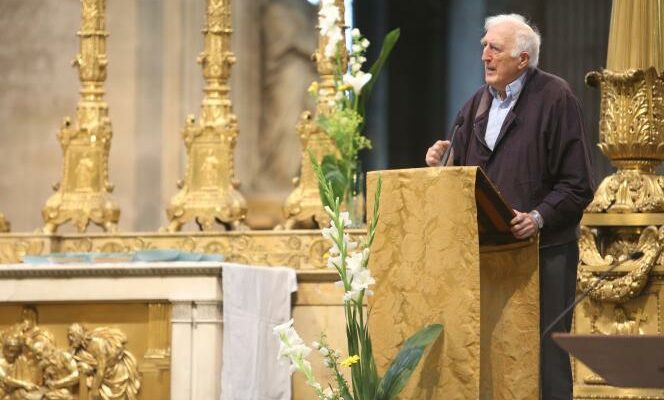A “secret society” at the heart of the Catholic Church: this is described by two reports published this week by independent commissions, mandated by l’Arche – a federation of associations helping people with intellectual disabilities – and the Dominican order .
These two reports are mainly interested in three great figures of contemporary Catholicism: Jean Vanier, founder of l’Arche, who died in 2019, and two Dominicans, Thomas Philippe, “spiritual father” of Jean Vanier and chaplain of l’Arche (died in 1993), and his brother Marie-Dominique Philippe, known to be the founder of the Saint-Jean community (died in 2006).
Reports show that the three men formed the hard core of a group formed around the spiritual center of Eau Vive, founded in 1945 by Thomas Philippe. Sometimes described as a sect, this group is at the origin of innumerable abuses, the reports of which draw up a non-exhaustive list: “Emprise, sexual abuse, collective delirium”etc.
Acts known since 1952
The report commissioned by l’Arche is particularly interested in Jean Vanier. Written by six researchers, it reveals that at least twenty-five adult women (against six identified until then) have lived “a situation involving a sexual act or an intimate gesture” with him, between 1952 and 2019. Even if some were consented, these relations “are all part of a continuum of confusion, control and abuse”.
The second report, published by Editions du Cerf under the title The Affair – The Dominicans face the scandal of the Philippe brothers, deciphers, meanwhile, the way in which their actions were able to remain secret for decades. New illustration of a culture of omerta that recent cases of child crime and sexual violence had already largely revealed. “We are here dealing with a very specific case. It’s about control, sexual assault without physical violence. But what is found from one case to another are the uses and misuses of secrecy by the institution.analyzes the historian Tangi Cavalin, author of this second report.
The actions of the Philippe brothers had been known since at least March 1952. Two women, described by the report as “whistleblowers”, then claim to have been victims of sexual assault on the part of Thomas Philippe. They testify to the Dominican authorities, who decide to launch an investigation. After a few weeks, the file arrives at the Holy Office, the court of the Church. “At the time, it seemed unthinkable that one could refer to a civil court. The Church considered that it had its own law and its own courts, which were there for that.recalls Tangi Cavalin.
You have 49.97% of this article left to read. The following is for subscribers only.
